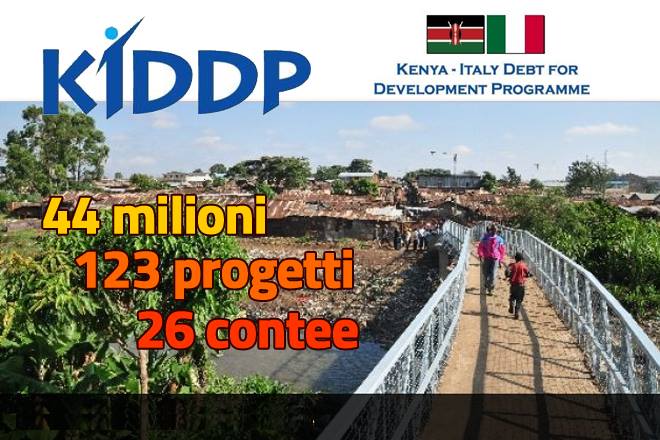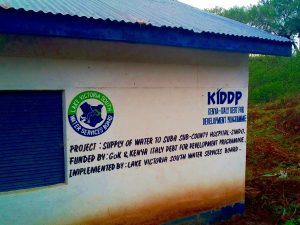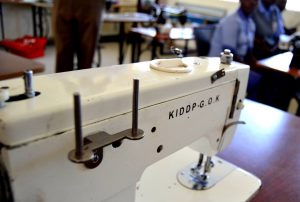The Debt Swap Program KIDDP (Kenya Italy Debt for Development Program), was launched in January 2007 and it is aimed at converting part of the debt of the Kenyan government towards the Italian government into development projects. The total value of the debt subject to the swap program amounts to 42,913,028.56 euros and 1,364,282.07 US dollars and counts a total of 126 initiatives carried on or in completion. The resources coming from the Program are aimed at supporting the country in its economic growth, in accordance with national policies in the water, health, education and urban development sectors, for a period of ten years subject to possible extensions.
In the water sector, the program has provided € 27 million to support interventions aimed at increasing the availability and access to sources of drinking water. This with 55 projects up to now, mostly located in the arid and semi-arid areas of the country. The development of new water systems (such as water intakes or underground springs, purification plants, cisterns) helped both to bring water even in areas without access, and to uograde already existing structures reaching an estimated population of 450,000 people.
In the education sector, KIDDP activities have focused on vocational training, one of the priorities for the Government of Kenya. With more than € 5 million invested in nine counties, new vocational training centers were built or existing ones were refurbished; all 36 institutes involved in the program benefited from machinery and teaching material for the different curricula. Each professional institute benefitted by the KIDDP was able to develop a training model linked to the needs of the local market and to provide sound basis for the development of the economic and social conditions of rural youth, in particular through the provision of scholarships for the most vulnerable groups and for trainings for teachers.
Within the health sector, over 4 million euros were disboursed to 21 small and medium-sized hospitals, which spanned from the rehabilitation of existing structures to the construction of new departments, benefiting approximately 130,000 people located in 11 different Counties. The interventions also helped to improve the training of health personnel on maternal and child health, administration and project management, and on prevention of AIDS and sexually transmitted diseases. In addition, all the facilities involved received equipment to improve the services provided.
Finally, in the urban development sector, the KIDDP supported in redeveloping the informal settlements (slums) in Korogocho (Nairobi) and Kilifi by financing projects aimed at improving the living conditions of the local communities and improving their socio-economic well-being. With more than 7 million euros allocated to the sector, the interventions were both of at infrastructural (construction / redevelopment of bridges, asphalted roads, recreational and community aggregation centers, basic health facilities) and policy level, with particular reference to the issue of ownership and participatory urban planning.
The Kenyan ministries - main managers and executors of the projects - and the local communities were supported throughout the duration of the project by the staff of the AICS Nairobi, through specific Technical Assistance.



